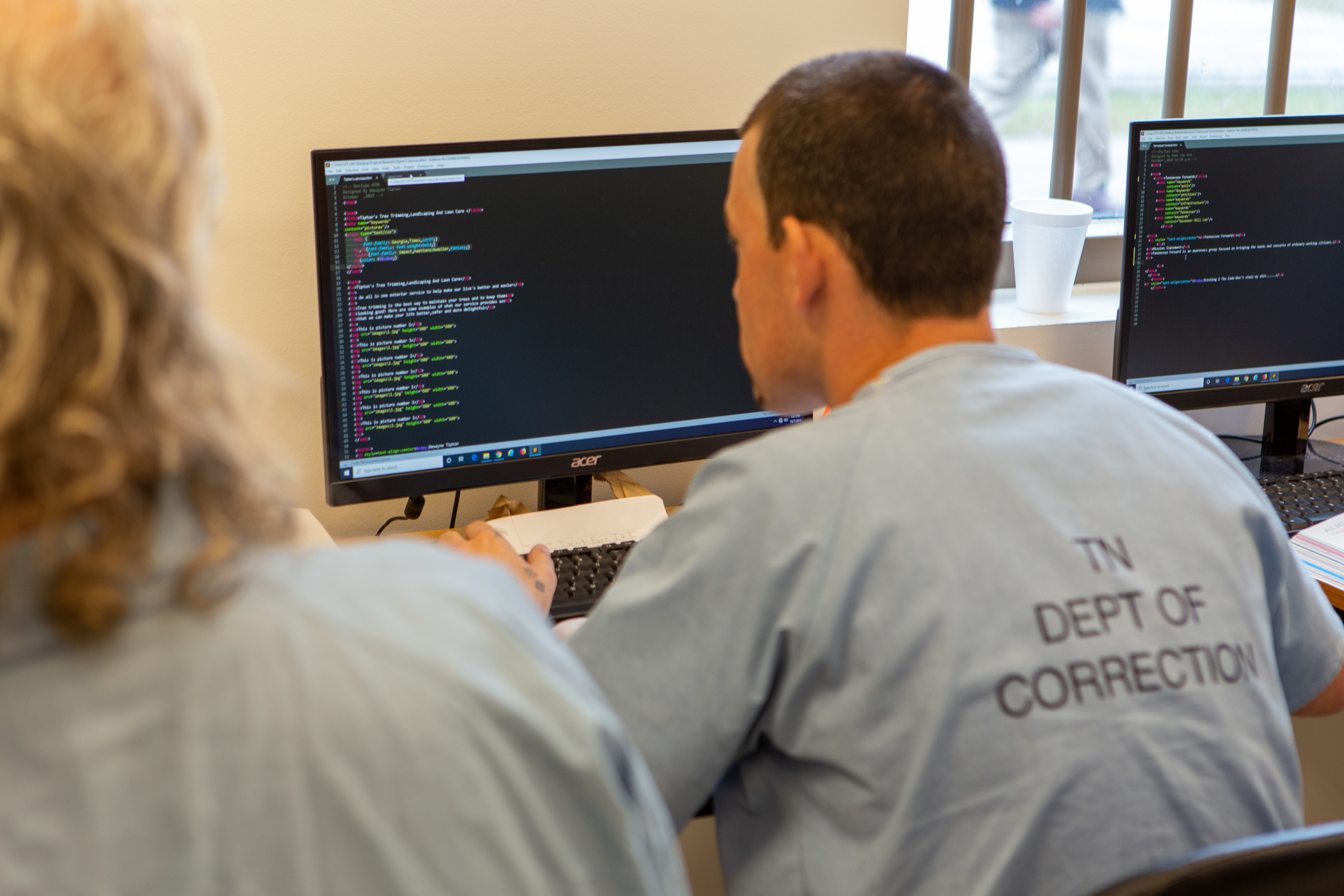
By Michelle Cotter, Director of Educational Resources at CoreCivic
 Research shows that general education and vocational training programs are critical in preparing the justice-involved to successfully reenter their communities. In fact, inmates who participate in correctional education programs are 43 percent less likely to return to prison than those who don't.
Research shows that general education and vocational training programs are critical in preparing the justice-involved to successfully reenter their communities. In fact, inmates who participate in correctional education programs are 43 percent less likely to return to prison than those who don't.
One of the most important components of a successful correctional education program is the ability to shift an individual's mindset. Education professionals are often a vessel of hope — rewriting bad education memories through positive learning environments and supportive interactions. These opportunities can help offenders begin to value education (maybe for the first time), see potential within themselves, and perhaps even breaking the cycle of incarceration.
No matter where an inmate starts, CoreCivic has an educational program to meet their needs and to nudge them in the right direction. We pride ourselves on having a successful correctional education program, and providing evidence-based programming opportunities for those wanting to climb out of illiteracy, learn a technical skill or even get a college degree. Because our ultimate goal is to return the offender to society with the best possible chance to be self-sufficient and able to support their families, we must provide a range of education services to meet the needs of our diverse populations.
In 2019, we launched two exciting programs to help offenders reenter society more prepared to support themselves and their families. We partnered with Ashland University at three of our facilities in Georgia (Coffee, Nichols, and Jenkins Correctional Centers) to provide inmates with tablets they can use to earn a college degree remotely. Through this program, over 80 inmates have enrolled in over 700 credit hours, all funded through a federal Second Chance Pell Grant.
We also partnered with Persevere, a national nonprofit organization that provides coding education programs for inmates, at Trousdale Turner Correctional Center in Hartsville, TN. In addition to helping inmates earn certifications in front-end and full-stack web development, Persevere also provides job readiness and life skills training with support from peer facilitators with technical backgrounds, and an employment specialist to help them with job placement after their release. In 2020, we plan to build on the success of these education partnerships by expanding them to more locations and individuals.
Thanks to the dedication of our correctional educators, I'm confident that those in our care can walk out of our facilities better prepared for the future.
